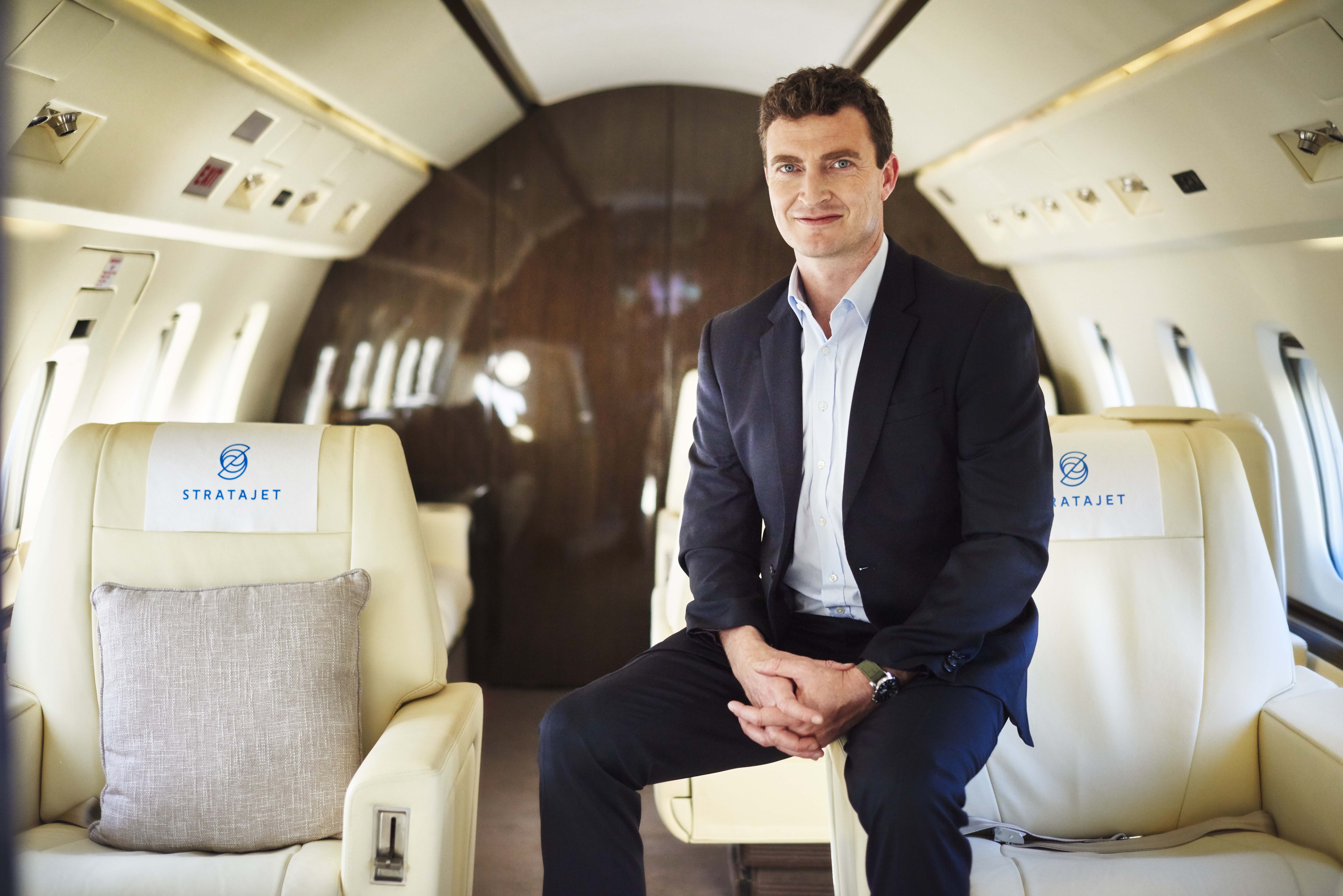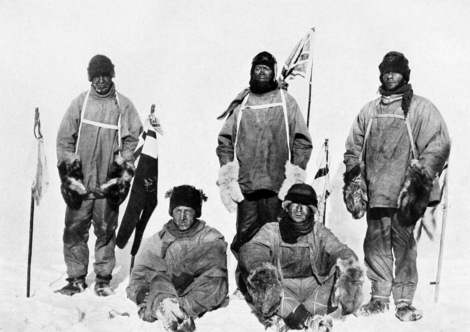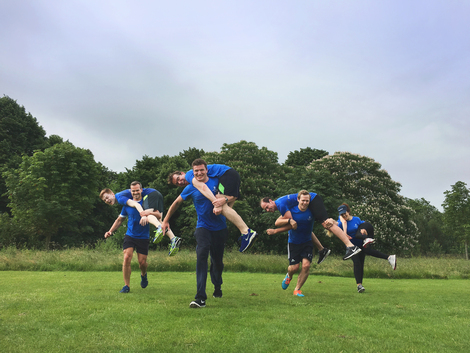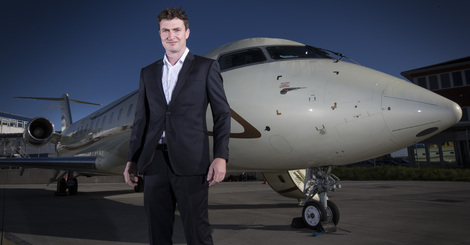Jonny Nicol has spent the past five months flying to 300 different cities using 486 operators. “When you jump out of a 1983 Piper Chieftain, they know you’re different, you understand aviation, and you’re not just another tech entrepreneur,” he tells GrowthBusiness.
Jonny Nicol is many things: a former military officer and pilot, a computer scientist and a freelance commercial pilot. Just another tech entrepreneur he is not.
His first two businesses, like Stratajet, used technology to disrupt traditional industries. After selling the second business to Hewlett Packard’s EDS Defence, Nicol worked as a freelance commercial pilot. It was during this stint that he realised just how inefficient private aviation is. “It was an industry ripe for disruption. Stratajet isn’t an incremental step, but a giant leap for the industry,” he says.
Conquering complexity
Stratajet famously took five years of planning before actually launching in April this year. Nicol spent two years on building the algorithm for the platofrm alone, battling numerous variables and other bureaucratic complexities rife in the private aviation space.
“32 per cent of people who come to Stratajet have never taken a private jet before. I want the process to be as easy as booking a standard airline ticket. Eventually, I want private aviation to be an acceptable form of travel,” he explains.
“The complexity of it was insane. We didn’t even know it would be possible. I was working on the belief it wouldwork. Thinking back, it was a high intensity, non-stop period of gruelling work, and we now stand alone in the world doing it.
“You have to be completely mad to start your own company like this,” Nicol adds with a wry smile.

“Stratajet stopped being the new hope for aviation industry but the only hope.”
For Nicol, the idea was just obvious. Traditionally, 40 per cent of private jet flights have no passengers on board, which makes the mode of transport wasteful to say the least. Nicol is a firm believer in that private transport should always work around the passenger. The years spent perfecting the Stratajet algorithm has helped him tackle the biggest barrier in the private aviation space: logistical complexity and pricing.
“When you charter an airline, you have to pay different people different fees, including landing fees, handling fees, taxes, nitrous oxide fees and so on. No two airfields have the same price structure. Even things like the time of sunrise or sunset affects prices. At an early stage, it took 18 minutes for our platform just to price 500 aircrafts in airfields around London to airfields around Geneva. We’ve now got it down to 10 seconds. That’s the barrier. You’ll see a lot of companies that purport to do what we do, but they have people manually collating information and that takes days,” according to Nicol.
In order to bend private aviation to customer will, like any other mode of private transport, Stratajet changes the time of flights or the airfields through its ‘adaptive empty leg engine’ and real-time pricing. “I’ve already mentioned how inefficient private aviation used to be. Empty legs are flights which are scheduled to fly without passengers, and usually these seats are sold at heavily discounted rates. Ideally, finding these empty legs would be a cost-effective way to fly private, but it’s virtually impossible to know when there’s an empty leg from where you are to where you’d like to go. This is what our adaptive empty leg engine solves,” Nicol explains.
With these solid algorithms in place, Stratajet provides customers with tremendous discounts, while still remaining flexible around customers’ itineraries. Essentially, flying private is now roughly the same cost of two to four business class tickets, according to Nicol. The company is now working with partners like Skyscanner to feed private aviation to business class customers.
“It’s my life’s work,” he says.
A leg up on copycats and competitors
For every unique breakthrough business idea, a solid dozen copycats tend to rear their patent-bending heads. For Nicol, Stratajet is lightyears ahead of potential rivals. Those five years of laying strong foundations in technology saw to that.
“If you look across tech start-up scene now, some of these businesses are really successful because they have technological barriers for new entrants. We’re right at the cutting edge of what companies are doing in terms of processing power. Up to 2.4 million calculations take place for each query. We’ve made sure that Stratajet’s infrastructure is configured in such a way that wastes no time,” Nicol says.
“We’ve built a moat around our tech. The faster we move around the globe, the more defensible it is. In fact, the biggest threat to our business is teleporting. But I’m sure we’re a few years away from that,” he adds.
Nicol’s business priorities are to make his brand defensible and profitable, but his personal goal is to make sure his team is happy. “We probably earmark more for making sure our staff is happy. Hardly anyone has left Stratajet in the past five years. Ultimately this journey is an intrinsic part of our lives, so all of us have to enjoy it.”
Despite his industry monicker, Nicol doesn’t classify himself as an entrepreneur at all. “I’m more of an inventor, and I’m definitely not just in it for the money. As a business leader, you have to be totally dedicated to your company. And so will your team,” he explains.
“I don’t think I’ll change a damn thing”
Nicol’s biggest inspiration is the intrepid explorer, Robert Falcon Scott. “Reading about his polar expedition in Death on the Ice, I realised the parallels between that and the start-up journey. Everything went wrong, and despite that, they achieved something amazing,” according to him.

Nicol’s biggest inspiration: Robert Falcon Scott
After hearing so much about his gruelling start-up phase, I had to ask if there was anything Nicol would have changed in hindsight.
His answer was as straightforward as his business acumen.
“Hindsight is an incredibly powerful thing. I don’t think I’ll change anything. I’d probably question the wisdom of doing it at all. But that’s what happens when you’re at the end of the pain, ahead of the reward. I don’t think I’ll change a damn thing,” he says.
“Short of working at McDonalds’, I don’t know what I can do, really. I’m completely unemployable! My background is military, flying and causing trouble at every opportunity. Honestly, that helps you steel yourself for the tough times,” he laughs.
Ultimately, Nicol, like many strong leaders, absolutely despises inefficiency, which catalysed his business. “Some part of my personality hates inefficiency and time wasted. There is nothing more inefficient than private aviation. The thing that gets me out of bed in the morning is changing the way things are done.”
When Nicol started Stratajet, he was admittedly wealthy and had a lot of time on his hands. “It would have been very easy for me to relax, be a pilot, fly around the world. In starting Stratajet, I put everything into it. I became poor, for one. Psychologically there is such a fine line between dedication and obsession. I don’t think you can get a successful start-up off the ground without being obsessed.”
“I put everything on the line. There was no guarantee that it would be possible, let alone successful. But you don’t regret it. The greater the challenge, the greater pride of having achieved it,” he says.
“I run my company like an arm of the British army”
As a self-professed “get-up-and-go” personality type, Nicol admits that his team at Stratajet are very much the same. “The Stratajet story is so extraordinary. We’ve defied so many odds as it is, that there is something about going the extra mile. Our industry is quite archaic and the ‘traditional’ type of people in the space won’t fit into our company. This is why I run my company like an arm of the British army.”

The Stratajet team doing ‘PT in the park’
Every Friday at 8am, the entire Stratajet team gather at one of Central London’s many parks (usually Hyde Park or Regent Park) to physically train. “Even when I was in themilitary, I hated training. Obviously there is the team building element to it. I call it ‘PT in the Park’ and when you work at Stratajet, people get swept into it and they love it,” Nicol says.
His philosophy is rooted in the idea that his business is ultimately the sum of individual parts, which is where the weekly training comes in.
Nicol adds that he’s never asked anyone to work late in his life, yet average time people leave is 8pm. “People are so passionate! We would never have succeeded without that mentality. It’s like what I tell my sales team: imagine we’ve just invented a new form of transport, which is pretty much the kind of impact Stratajet has on private aviation.”
“The world is not enough”
Nicol sees the psychological impact of private aviation as empowering, and a feeling that everyone should be able to experience. “Currently only 0.001 per cent of the world fly privately, but the feeling private aviation gives you is incredible. It shrinks the world. I want everyone to have that feeling of having breakfast in London, lunch in the south of France, and not feel like you’ve travelled.”
On the surface, Nicol admits that the Stratajet story seems cut-and-dry. “We make it easier to book private jets. So what? The other half of the story is where we shine. The industry is in decline, yet it employs four million people. Engineers can spend ten years working on an aircraft design before they get the licenses they need. It’s the same for pilots in terms of the effort and work that goes into their accreditation. These four million people will be unemployed in future the way the industry is going.
“Stratajet stopped being the new hope for aviation industry but the only hope,” Nicol says.
In Nicol’s view, Stratajet is the only company stimulating the declining industry, getting new people into the space and democratising what was once the preserve of the impossibly affluent. “We will continue to reduce cost of private aviation and make it accessible. To me, that’s something worth getting out of bed for.”
Jonny Nicol was the keynote speaker at this year’s edition of London Tech Invest.






